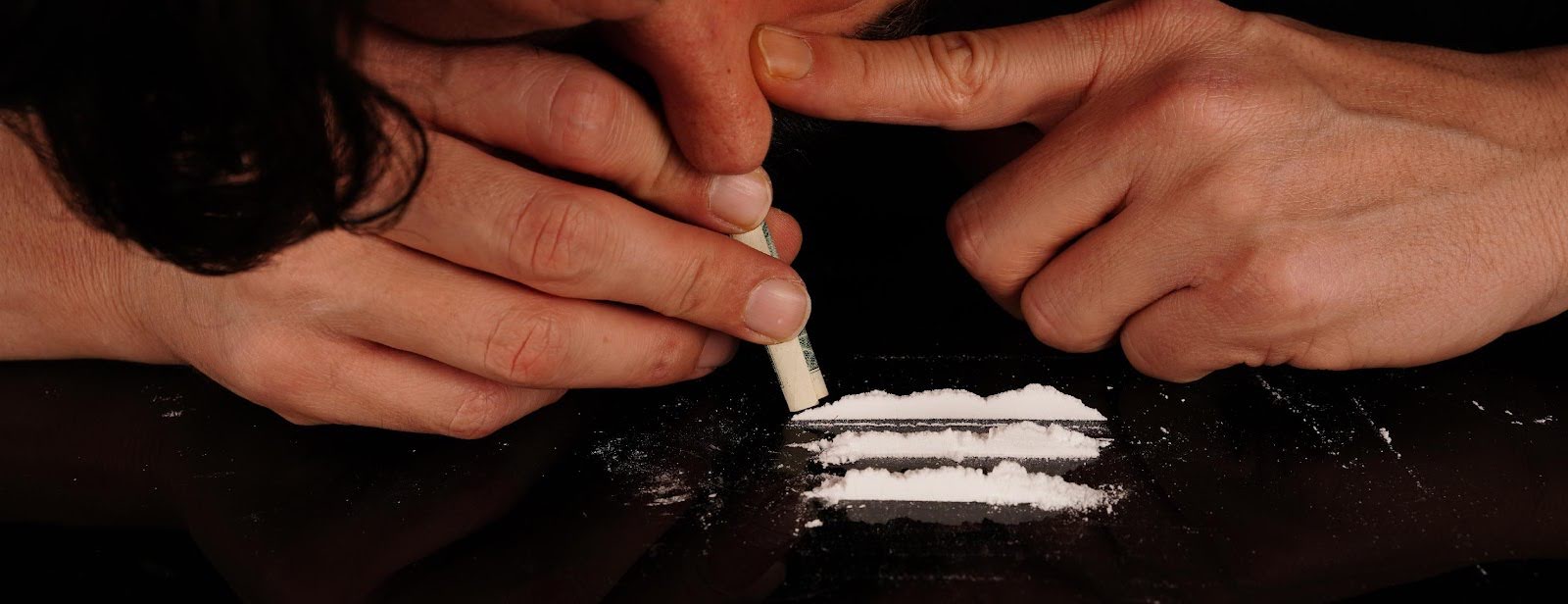Understanding Arizona Drug Crimes

Facing Arizona drug charges is overwhelming. The legal system is complex and can be intimidating. Understanding the specifics of the crime and the potential penalties if convicted are important steps in navigating the legal system.
Lawyer Listed created this guide to provide you with a detailed overview of the most common drug charges in Arizona. It explains key terms and sentencing guidelines. It also answers frequently asked questions about these charges.
Remember, this information is for educational purposes only and is not a substitute for legal advice from an experienced criminal defense lawyer. If you are facing charges for violating Arizona state drug laws, consult with a qualified Arizona criminal attorney as soon as possible. Lawyer Listed simplifies this process by matching you with an elite criminal defense lawyer tailored to your case.
Key Concepts of Arizona Drug Crimes
- Knowingly means you are aware of your actions or the circumstances that make up the offense. It doesn’t require that you know your conduct is illegal; you just need to be conscious of what you are doing or the situation you are in.
- Manufacture means to produce, process, or package a substance by natural extraction, chemical synthesis, or both — excluding such activities lawfully performed by licensed practitioners as part of their professional practice.
- Produce means to grow, plant, cultivate, harvest, dry, process, or prepare for sale.
- Sale means an exchange for anything of value or advantage, present or prospective.
- Transfer means to furnish, deliver, or give away.
Dangerous Drugs: ARS 13 3407

In Arizona, it is illegal to knowingly have, use, make, move, or sell dangerous drugs without a valid prescription. “Dangerous drugs” include most prescription or synthetic drugs that are not marijuana and not classified as narcotics.
ARS 13 3407 covers these seven specific violations:
- Possessing or using a dangerous drug
- Possessing a dangerous drug for sale
- Possessing equipment or chemicals for manufacturing
- Manufacturing a dangerous drug
- Administering a dangerous drug to another person
- Obtaining dangerous drugs through fraud or deceit
- Transporting, importing, or selling dangerous drugs
Common Dangerous Drugs
Dangerous:
| Drug Name | Common Use / Notes |
|---|---|
| Methamphetamine | Illicit stimulant; high abuse and trafficking rates |
| MDMA (Molly/Ecstasy) | Club drug; stimulant and hallucinogenic effects |
Prescription:
| Drug Name | Common Use / Notes |
|---|---|
| Amphetamine | Includes Adderall; misused for focus and energy |
| Alprazolam (Xanax) | Benzodiazepine; widely misused for anxiety relief |
| Diazepam (Valium) | Benzodiazepine; sedative |
| Testosterone | Anabolic steroid; muscle enhancement |
Hallucinogen:
| Drug Name | Common Use / Notes |
|---|---|
| LSD (Acid) | Potent hallucinogen |
| PCP (Phencyclidine) | Dissociative; linked to erratic and violent behavior |
| Psilocybin | Found in “magic mushrooms”; psychedelic |
| Mescaline | Derived from peyote; spiritual and hallucinogenic |
Threshold Amounts and Enhanced Penalties
| Drug Name | Common Use / Notes |
|---|---|
| LSD (Acid) | Potent hallucinogen |
| PCP (Phencyclidine) | Dissociative; linked to erratic and violent behavior |
| Psilocybin | Found in “magic mushrooms”; psychedelic |
| Mescaline | Derived from peyote; spiritual and hallucinogenic |
Sentencing for Dangerous Drug Crimes
In Arizona, the punishment for a dangerous drug crime depends on several factors, including the type and amount of the drug, what you’re accused of doing, your past criminal record, and whether you qualify for a diversion program. Probation is not available (N/A) for some dangerous drug crimes, meaning that prison is mandatory. The tables below show the possible penalties for each type of dangerous drug offense.
Possession or Use of Dangerous Drugs
| Charge | Class | Prison/Jail | Probation (max) |
|---|---|---|---|
| Possession of dangerous drug: LSD, PCP, methamphetamine, amphetamine | Class 4 Felony | Prison: 1 – 3.75 years | 4 years |
| Possession of dangerous drug: all other dangerous drugs (reduced charges) | Class 1 Misdemeanor | Jail: up to 6 months | 3 years |
Manufacturing Dangerous Drugs
| Charge | Class | Prison/Jail | Probation (max) |
|---|---|---|---|
| Possession of equipment or chemicals for manufacturing dangerous drugs | Class 3 Felony | Prison: 2 – 8.75 years | 5 years |
| Possession of equipment or chemicals for manufacturing methamphetamine | Class 2 Felony | Prison: 5 – 15 years | N/A |
| Manufacturing dangerous drugs | Class 2 Felony | Prison: 3 – 12.5 years | N/A |
| Manufacturing methamphetamine | Class 2 Felony | Prison: 5 – 15 years | N/A |
Administering Dangerous Drugs
| Charge | Class | Prison/Jail | Probation (max) |
|---|---|---|---|
| Administer a dangerous drug to another | Class 2 Felony | Prison: 3 – 12.5 years | 7 years |
| Administer a dangerous drug to another (over threshold amount) | Class 2 Felony | Prison: 3 – 12.5 years | N/A |
| Administer a date rape drug without consent to victim under 18 | Class 2 Felony | Prison: 3 – 12.5 years | N/A |
Obtaining Dangerous Drugs
| Charge | Class | Prison/Jail | Probation (max) |
|---|---|---|---|
| Obtaining dangerous drugs by fraud | Class 3 Felony | Prison: 2 – 8.75 years | 5 years |
Transport for Sale, Sell, or Transfer Dangerous Drugs
| Charge | Class | Prison/Jail | Probation (max) |
|---|---|---|---|
| Transport/Sell/Transfer dangerous drugs | Class 2 Felony | Prison: 3 – 12.5 years | 7 years |
| Transport/Sell/Transfer dangerous drugs (over threshold amount) | Class 2 Felony | Prison: 3 – 12.5 years | N/A |
| Transport/Sell/Transfer methamphetamine | Class 2 Felony | Prison: 5 – 15 years | N/A |
Beyond imprisonment, you face mandatory fines. Courts must impose at least $1,000 or three times the drug’s value, whichever is greater. If sentenced to probation, you must complete at least 360 hours of community service with drug treatment programs or victim services organizations.
Frequently Asked Questions (FAQs)
A: Arizona separates controlled substances into different categories. Dangerous drugs include methamphetamine, prescription stimulants, and hallucinogens. Narcotic drugs include heroin, cocaine, and prescription opioids. Both carry similar penalties but are prosecuted under different statutes.
A: Yes, possessing prescription medications without a valid prescription constitutes dangerous drug possession. Common prescription drugs that lead to charges include Adderall, Xanax, and Ritalin. Having an expired prescription or someone else's medication can result in criminal charges.
A: If you have more than the legal “threshold amount” of a dangerous drug, prosecutors can use that to argue you planned to sell it, not just use it yourself. Having that much also means you can’t get probation. For example, the threshold amount for methamphetamine is 9 grams — and possessing that amount or more means a mandatory prison sentence.
Narcotic Drugs: ARS 13-3408

It is against the law in Arizona to have, use, make, or sell narcotic drugs. A narcotic drug can be natural or man‑made. It includes anything on the state’s official list of controlled narcotics, as well as any substance that looks or acts the same as those listed drugs.
ARS 13 3408 covers these seven specific violations:
- Possessing or using a narcotic drug
- Possessing a narcotic drug for sale
- Possessing equipment or chemicals for manufacturing
- Manufacturing a narcotic drug
- Administering a narcotic drug to another person
- Obtaining a narcotic drug through fraud or deceit
- Transporting, importing, or selling narcotic drugs
Common Narcotic Drugs
Street Drug
| Drug Name | Common Use / Notes |
|---|---|
| Fentanyl | Synthetic opioid |
| Heroin | Semi-synthetic opioid |
| Cocaine | Stimulant |
Prescription
| Drug Name | Common Use / Notes |
|---|---|
| Fentanyl | Used in medical treatment; also misused |
| Oxycodone | Opioid painkiller; includes OxyContin |
| Hydrocodone | Found in Vicodin; prescribed and misused |
| Morphine | Natural opioid; used medically and diverted |
| Codeine | Found in cough syrups; recreational misuse |
| Methadone | Used in treatment; also misused |
Threshold Amounts for Enhanced Penalties
| Drug | Threshold Amount |
|---|---|
| Fentanyl | 9 grams |
| Heroin | 1 gram |
| Cocaine | 9 grams |
Sentencing for Narcotic Drug Crimes
The penalties for narcotic drug crimes in Arizona depend on several factors, including the type and amount of the drug, what you were accused of doing, your past criminal record, and whether you qualify for a diversion program. Probation is not available (N/A) for some narcotic drug crimes, meaning that prison is mandatory. The tables below show the possible penalties for each type of offense.
Possession or Use of Narcotic Drugs
| Charge | Class | Prison/Jail | Probation (max) |
|---|---|---|---|
| Possession of narcotic drug | Class 4 Felony | Prison: 1 – 3.75 years | 4 years |
Manufacturing Narcotic Drugs
| Charge | Class | Prison/Jail | Probation (max) |
|---|---|---|---|
| Possession of equipment or chemicals for manufacturing narcotic drugs | Class 3 Felony | Prison: 2 – 8.75 years | 5 years |
| Manufacturing narcotic drugs | Class 2 Felony | Prison: 3 – 12.5 years | N/A |
Administering Narcotic Drugs
| Charge | Class | Prison/Jail | Probation (max) |
|---|---|---|---|
| Administer narcotic drug to another | Class 2 Felony | Prison: 3 – 12.5 years | 7 years |
| Administer narcotic drug to another (over threshold amount) | Class 2 Felony | Prison: 3 – 12.5 years | N/A |
Obtaining Narcotic Drugs
| Charge | Class | Prison/Jail | Probation (max) |
|---|---|---|---|
| Obtaining narcotic drugs by fraud | Class 3 Felony | Prison: 2 – 8.75 years | 5 years |
Transport for Sale, Sell, or Transfer Narcotic Drugs
| Charge | Class | Prison/Jail | Probation (max) |
|---|---|---|---|
| Possession of narcotic drugs for sale | Class 2 Felony | Prison: 3 – 12.5 years | 7 years |
| Possession of narcotic drugs for sale (over threshold amount) | Class 2 Felony | Prison: 3 – 12.5 years | N/A |
| Possession of fentanyl for sale (200 grams or more) | Class 2 Felony | Prison: 5 – 15 years | N/A |
| Transport of narcotic drugs for sale | Class 2 Felony | Prison: 3 – 12.5 years | 7 years |
| Transport of narcotic drugs for sale (over threshold amount) | Class 2 Felony | Prison: 3 – 12.5 years | N/A |
| Transport of fentanyl for sale (200 grams or more) | Class 2 Felony | Prison: 5 – 15 years | N/A |
Beyond imprisonment, mandatory fines apply. Courts must impose at least $2,000 or three times the drug’s value, whichever is greater. If sentenced to probation, you must complete at least 360 hours of community service working with drug treatment programs or victim services organizations.
Frequently Asked Questions (FAQs)
A: In Arizona, fentanyl crimes come with tougher punishments. If you’re caught with 200 grams or more for sale or transport, the law requires a prison sentence of 5 to 15 years. You can’t get probation for these charges.
A: Having prescription drugs in Arizona without a current prescription can lead to narcotic drug charges. This includes medicines like morphine, oxycodone, methadone, and codeine. If the prescription is expired — or the pills belong to someone else — you could face criminal drug charges.
A: If you have more than the legal “threshold amount” of a narcotic drug, prosecutors can use that to argue you planned to sell it, not just use it yourself. Having that much also means you can’t get probation. For example, the threshold amount for fentanyl is 9 grams — and having that amount or more means a mandatory prison sentence.
A: If you are sentenced to probation for a narcotic drug charge, you can’t use marijuana, dangerous drugs, narcotics, or any prescription medicine that isn’t prescribed to you. While on probation, you will have to take supervised drug tests the whole time.
Marijuana: ARS 13-3405

Arizona marijuana laws under ARS 13-3405 make certain marijuana-related activities illegal, even though recreational use is now legal in limited circumstances. Understanding where legal use ends and criminal activity begins is crucial.
The question is often asked: Is marijuana legal in Arizona? The answer is yes but with strict limitations. If you are at least 21 years old, you can legally possess up to one ounce of marijuana, including up to five grams of concentrate. You can also grow up to six plants at your primary residence. However, exceeding these limits or engaging in sales activities remains criminal.
ARS 13-3405 covers four main categories of marijuana crimes:
Possession or use of marijuana
Possession of marijuana for sale
Production of marijuana
Transporting, selling, or transferring marijuana
Legal vs. Illegal Marijuana Activities
| Activity | Explanation | Legal? |
|---|---|---|
| Possession | Adults (21+) can legally have up to one ounce of marijuana. That ounce can include up to five grams of concentrates, like hash or cannabis oil. | ✔️ Yes |
| Cultivation | Adults (21+) can grow up to six marijuana plants at their main home for personal use. If more than one adult lives there, the household can have no more than twelve plants in total. | ✔️ Yes |
| Private Transfer | Adults (21+) can give another adult up to one ounce of marijuana for free. The hand-off must be in private and cannot be advertised or promoted publicly. | ✔️ Yes |
| Paraphernalia | Adults (21+) can legally have and use marijuana accessories—like pipes, bongs, vaporizers, or rolling papers—as long as the paraphernalia is for legal personal use. | ✔️ Yes |
| Public Use | Smoking or using marijuana in public places—like parks, sidewalks, or restaurants—is against the law. Smoking or using marijuana must be in a private space, such as a home. | ❌ No |
| Driving Under the Influence | Even if having or smoking marijuana is legal, it is against the law to drive while impaired by or under the influence of marijuana. | ❌ No |
Threshold Amounts and Enhanced Penalties
| Drug | Threshold Amount |
|---|---|
| Marijuana | 2 pounds |
Sentencing for Marijuana Crimes
The punishment for marijuana‑related crimes depends on how much marijuana is involved, what the offense is, your past criminal record, and whether you qualify for a diversion program. Probation is not available (N/A) for some marijuana crimes, meaning that prison is mandatory. The charts below show the possible penalties for each type of offense.
Possession or Use of Marijuana
| Charge | Class | Prison | Probation (max) |
|---|---|---|---|
| Possession: 1+ ounce – 2.5 ounces | Petty offense | 0 | 0 |
| Possession: 2.5+ ounces – 2 pounds | Class 6 Felony | 0.33 – 2 years | 3 years |
| Possession: 2 – 3.99 pounds | Class 5 Felony | 0.5 – 2.5 years | 3 years |
| Possession: 4+ pounds | Class 4 Felony | 1 – 3.75 years | 4 years |
Possession of Marijuana for Sale
| Charge | Class | Prison | Probation (max) |
|---|---|---|---|
| Possess for sale: less than 2 pounds | Class 4 Felony | 1 – 3.75 years | 4 years |
| Possess for sale: 2 – 4 pounds | Class 3 Felony | 2 – 8.75 years | N/A |
| Possess for sale: 4+ pounds | Class 2 Felony | 3 – 12.5 years | N/A |
Production of Marijuana
| Charge | Class | Prison | Probation (max) |
|---|---|---|---|
| Production: less than 2 pounds | Class 5 Felony | 0.5 – 2.5 years | 3 years |
| Production: 2 – 4 pounds | Class 4 Felony | 1 – 3.75 years | N/A |
| Production: 4+ pounds | Class 3 Felony | 2 – 8.75 years | N/A |
Transporting, Selling, or Transferring Marijuana
| Charge | Class | Prison | Probation (max) |
|---|---|---|---|
| Transport/Sell/Transfer: less than 2 pounds | Class 3 Felony | 2 – 8.75 years | 5 years |
| Transport/Sell/Transfer: 2 pounds or more | Class 2 Felony | 3 – 12.5 years | N/A |
If you are convicted of a marijuana crime, you will face more than just incarceration. The court must fine you at least $750 or three times what the marijuana was worth, whichever is greater. You will also have to do community service: 24 hours for possession, and 240 hours for selling, growing, or transporting marijuana.
Frequently Asked Questions (FAQs)
A: Marijuana is legal in Arizona under certain circumstances. Adults (21+) can legally have up to 1 ounce of marijuana (5 grams concentrate) and grow up to 6 plants. Anything over these limits falls outside the recreational use exception and are criminal offenses.
A: No, minors under 21 cannot legally possess any amount of marijuana in Arizona. For first-time offenders, it is a petty offense with civil penalties up to $100 and the potential requirement to attend drug education classes. Additional violations become criminal offenses.
A: If you’re 21 or older, you can grow up to six marijuana plants at your home for personal use. They must be in a locked, enclosed space where minors can’t get to them, and they can’t be visible from the street or other public areas. If more than one adult lives in the home, the total limit is twelve plants.
Drug Paraphernalia: ARS 3415

ARS 13-3415 makes it illegal to use or possess drug paraphernalia with the intent to use it for drug-related activities. This law applies to any equipment, products, or materials used for activities involving narcotic drugs, dangerous drugs, marijuana, or peyote.
The law doesn’t just target users. Delivering, possessing with intent to deliver, or manufacturing drug paraphernalia when you know it will be used for illegal drug activity carries the same penalties as possession of drug paraphernalia.
Common Types of Drug Paraphernalia
Arizona state drug laws define drug paraphernalia very broadly. The law covers any equipment used to plant, propagate, cultivate, grow, harvest, manufacture, compound, convert, produce, process, prepare, test, analyze, pack, repack, store, contain, conceal, inject, ingest, inhale, or otherwise introduce drugs into the human body.
Illegal drug paraphernalia falls into the following categories:
| Paraphernalia | Examples |
|---|---|
| Cultivation Equipment |
Kits for growing plants that produce drugs Equipment for increasing plant potency Separation devices for cleaning marijuana |
| Manufacturing & Processing Tools |
Scales and balances for weighing drugs Mixing bowls, spoons, and containers Testing equipment for analyzing drug strength Substances used to cut or dilute drugs |
| Consumption Devices |
Pipes of various materials (glass, metal, plastic, ceramic) Water pipes and bongs Hypodermic syringes and needles Roach clips and smoking masks Cocaine spoons and vials |
| Storage & Concealment |
Small containers, capsules, and balloons Any object used to hide or store drugs |
How Courts Determine What Qualifies as Paraphernalia
Not every pipe, scale, or plastic bag is illegal. Courts apply a multifactor analysis to determine whether an object qualifies as drug paraphernalia. This approach helps distinguish lawful consumer goods from items intended for illegal drug use. The evaluation typically includes the following:
Ownership and Credibility
Courts consider the background and explanation provided by the individual in possession of the item:
- The owner’s stated purpose for the item
- Any prior convictions related to drug offenses
- Whether the owner operates as a legitimate supplier, such as a licensed distributor or retailer
Content and Proximity
These factors focus on the item’s physical context and relationship to alleged drug activity:
- The item’s proximity to illegal drugs at the time of discovery
- Whether drug residue was found on the item
- The item’s location relative to the time and place of the suspected offense
- How the item was packaged, displayed, or marketed — especially if suggestive of drug-related use
Intent and Knowledge
Courts assess whether the item was knowingly used or intended to facilitate drug violations:
- Evidence that the owner intended to distribute the item for unlawful drug use
- Spoken or written instructions describing how to use the item with controlled substances
- Manuals, labels, or packaging that explain drug-related uses
- Advertisements promoting the item for drug consumption
- Expert testimony regarding the item’s design, typical use, or function in drug activity
Sentencing for Drug Paraphernalia
Penalties for drug paraphernalia offenses depend on the nature of the offense, your criminal history, and eligibility for diversion programs. The table below outlines the potential consequences for first-time drug offenders in Arizona.
| Charge | Class | Prison | Probation (max) |
|---|---|---|---|
| Possession of drug paraphernalia | Class 6 Felony | 0.33 – 2 years | 3 years |
Arizona law requires forfeiture of all drug paraphernalia. This means the state can permanently seize and dispose of items, regardless of whether you’re convicted. Even if charges are dropped or you’re found not guilty, the state may still keep the paraphernalia.
Frequently Asked Questions (FAQs)
A: "Intent to use" means you possess drug paraphernalia with the purpose of using it for drug-related activities. This can be inferred from circumstances. For example, having a pipe with drug residue indicates intent to use.
A: Yes, you can still be charged. The law focuses on the intent and design of the object. Even without drug residue, if the object is designed for drug use and you possess it with that intent, you can face charges.
A: Not necessarily. Syringes have legitimate medical uses, but if the state proves they were intended for illegal drug injection, they will qualify as paraphernalia under Arizona state drug laws.
A: Possession doesn't necessarily mean ownership. If you have control of drug paraphernalia, even temporarily, you could be charged depending on the circumstances of the case.
Alternative Programs and Sentencing Options

Proposition 200 Eligibility
First-time drug offenders in Arizona may qualify for protections under Proposition 200. This law requires probation instead of prison for first and second nonviolent drug possession offenses. If you are eligible, courts cannot sentence you to prison or jail for your first or second conviction for simple possession. Instead, you would be placed on probation and likely participate in a drug treatment program.
However, important exceptions apply. Methamphetamine cases do not qualify for Proposition 200 protection. You are also ineligible if you have prior felony convictions or previous drug sale convictions. The prosecution reviews your entire criminal history to determine eligibility.
TASC Alternative Programs
TASC (Treatment Assessment Screening Center) programs offer another path to avoid a drug-related conviction. These adult diversion programs typically last 12 months or more and include comprehensive drug treatment components.
If you successfully complete a TASC program, charges against you will be dismissed. This provides an opportunity to avoid a criminal conviction while addressing underlying substance abuse issues.
Next Steps:

Arizona drug crimes carry serious consequences. The charges and the resulting sentence depend on many factors. Lawyer Listed meets you where you are and helps you understand the law and your rights to effectively get through this difficult situation.
If you’re facing Arizona drug charges, engaging a skilled drug crimes attorney is essential to protect your rights and manage the process. Don’t try navigating the legal system alone; match with your ideal lawyer at LawyerListed.com and get an experienced criminal defense attorney on your side right away.
